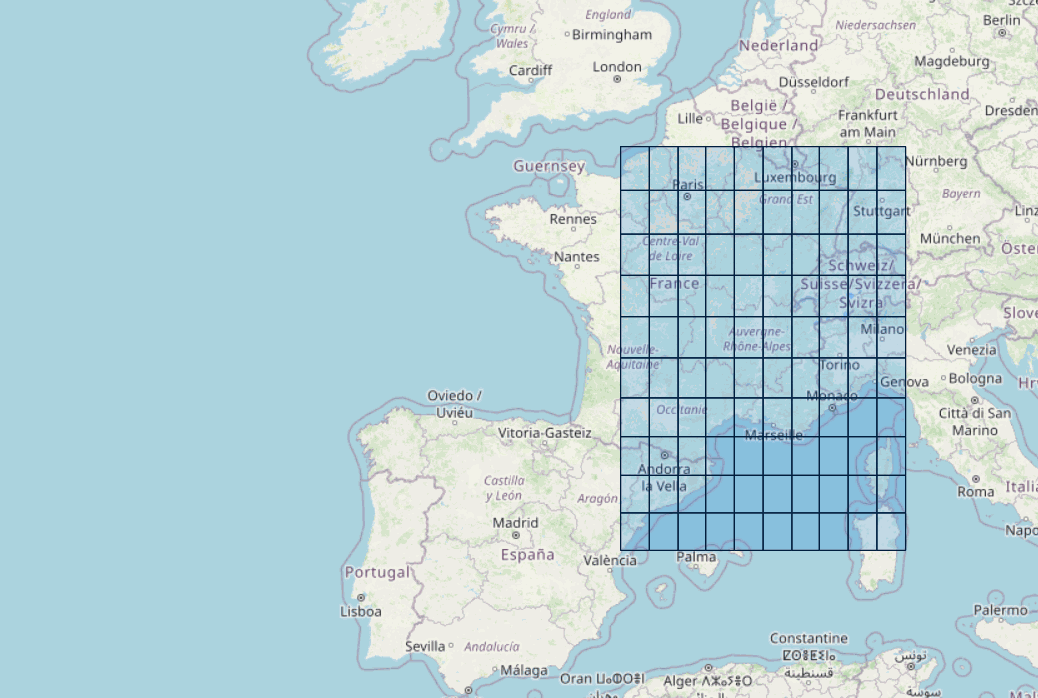
UPlanet, un "SI" décentralisé fiable et précis
Abstract:
In the contemporary digital landscape, centralized information structures dictate the flow of data, posing challenges to authenticity, precision, and user autonomy. UPlanet is a groundbreaking solution that disrupts this paradigm, ushering in a decentralized, grid-based approach to information management. This white paper aims to outline the principles, architecture, and benefits of UPlanet, showcasing its potential to redefine the way we interact with distributed data.
Challenges with Current Systems
Centralized information structures have dominated the digital age, leading to several challenges:
Lack of Authenticity: Centralized systems often struggle to maintain the authenticity of information, leading to trust issues among users.
Precision Concerns: Current systems may lack precision in data representation, especially when dealing with geolocated information.
Limited User Autonomy: Users often have limited control over their data, relying on centralized entities for access and management.
UPlanet's Innovative Solution
UPlanet addresses these challenges by introducing a decentralized, grid-based information ecosystem. The key principles and features include:
1. Grid and Signature-Based System:
UPlanet employs a grid-based structure for decentralized data management. UPlanet adds wallets and collect geolocated data through a signature-based system, ensuring authenticity.
2. Geolocation Precision:
Each grid unit represents a 0.01° sector, allowing for precise geolocation data representation. UPlanet ensures accuracy at different levels, from local Tiddlers to the 10° full map, providing a reliable geospatial framework.
3. User Autonomy:
UPlanet empowers users by allowing them to register their own TiddlyWiki in their area. Users maintain control over their data, with a daily analysis process that detects and informs them of any potential conflicts or duplicates.
4. Conflict Resolution Mechanism:
UPlanet introduces a conflict resolution mechanism based on the number of signatures. The system resolves conflicts based on the level of the grid:
0.01°: layer 1 signature (1)
0.1°: layer 2 signatures (3)
1°: layer 3 signatures (12)
10°: layer 4 signatures (144)
UPlanet: layer 5 signatures (20.736)
5. Information Layering:
The intelligent contract collects data from users located in a specific UMap location and sends it to the next information layer. Information is progressively aggregated from 0.01° to 10°, creating a layered and comprehensive representation of geolocated data.

Astroport Integration
UPlanet integrates with Astroport, an IPFS distributed storage software, enhancing data security and accessibility. Astroport introduces a Master Boot Record (MBR) and an allocation table to TiddlyWiki data, ensuring robust storage and retrieval.
1. Core Principles:
UPlanet operates on core principles of decentralization, data refinement through a web of trust, and user-centric navigation. This section details the fundamental principles guiding the development and implementation of Uplanet.
2. Web of Trust:
UPlanet's success hinges on a robust web of trust that refines and verifies data. This section elucidates the mechanics of the web of trust, highlighting its role in ensuring the credibility and reliability of the information traversing the UPlanet ecosystem.
3. Collaborative Administration:
UPlanet fosters collaborative administration through the use of PGP and SSH cross-signed documents. This collaborative approach ensures that both people and computers can coexist harmoniously, relying on real confidence proofs for secure and transparent network management.
4. Intelligent Contract and Data Collection:
The intelligent contract within UPlanet plays a pivotal role in collecting and disseminating data. This section delves into the mechanics of the intelligent contract, outlining how it facilitates the collection of TiddlyWiki data and its progressive transmission to the next information layer.
5. Conflict Resolution Mechanism:
UPlanet's conflict resolution mechanism, driven by the number of signatures, stands as an innovative solution to address discrepancies. Email alerts, detection of differences in content and signatures, and a user-involved resolution process ensure that conflicts are efficiently managed, reinforcing the accuracy and reliability of the aggregated geolocated data.
6. Security and Privacy:
UPlanet prioritizes user security and privacy by employing advanced cryptographic techniques and permission controls. This section discusses the various security measures in place to protect user data and maintain confidentiality within the decentralized ecosystem.
7. Scalability and Performance:
UPlanet's grid-based architecture and integration with Astroport ensure a highly scalable and performant system capable of handling large volumes of data. This section explores the various factors that contribute to UPlanet's ability to scale and maintain optimal performance.
8. Interoperability and Integration:
UPlanet's modular design enables seamless integration with various platforms and services. This section highlights the interoperability of UPlanet with other systems, emphasizing the flexibility and adaptability of the ecosystem in catering to diverse use cases.
9. Use Cases and Applications:
UPlanet's decentralized information ecosystem has numerous potential applications across various domains, including but not limited to smart cities, environmental monitoring, and supply chain management. This section provides an overview of some possible use cases and the benefits UPlanet offers in each scenario.
10. Future Developments and Roadmap:
UPlanet's ongoing development aims to incorporate advancements in technology and user feedback to refine and enhance the ecosystem continually. This section outlines the future roadmap for UPlanet, detailing the planned features and improvements set to bolster the platform's capabilities further.
Conclusion:
UPlanet represents a transformative approach to information management, leveraging decentralized, grid-based architecture to tackle the challenges of authenticity, precision, and user autonomy. By fostering a robust web of trust, promoting user-centric navigation, and enabling collaborative administration, UPlanet has the potential to redefine how we interact with distributed data. With its innovative conflict resolution mechanism, layered information representation, and integration with Astroport, UPlanet stands poised to usher in a new era of decentralized information ecosystems that prioritize trust, precision, and user empowerment.
Decentralized Information Ecosystem
UPlanet - Bridging Realms through Trust and Precision